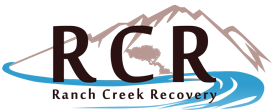As loved ones, it is our duty to support and protect those closest to our hearts. Regardless of race, color, creed or sexual orientation, being there for a child through thick and thin is the very definition of familial support.
While we seemingly live in an evolved social state, discrimination is still very real and very impactful for those who are discriminated against.
For your homosexual daughter or son, finding a way to wholeheartedly accept themselves at times can become a difficult task. From social intolerance to blatant discrimination, the social struggles and personal attacks they experience can be enough to drive them toward substance abuse to manage their pain.
While you cannot control those around you from spouting off ignorant comments or hateful actions, you can be there for your child if they decide they need clinical treatment to address the addictive behaviors.
That is why LGBTQ-friendly addiction treatment facilities are so important. They provide your loved one a safe and culturally aware where they can address their substance use disorder and work toward sustained sobriety and personal growth.
Challenges and Pain: What Your LGBTQ Child May Contend with Because of Their Sexuality
Research has shown that LGBTQ individuals across the country continue to experience widespread discrimination that negatively impacts all aspects of their lives.
From job performance to personal relationships, the negative treatment experienced by someone identifying as LGBT or Q reverberates throughout their entire existence, increasing the likelihood of both substance addiction and mental health issues.
Some of the more concerning statistics regarding LGBTQ discrimination include:
- 68.5 percent reported that discrimination at least somewhat negatively affected their psychological well-being.
- 6 reported discrimination negatively impacted their neighborhood and community environment.
- 52.8 percent reported that discrimination negatively impacted their work environment.
- 7 percent reported that discrimination negatively impacted their spiritual well-being.
- 43.7 percent reported that discrimination negatively impacted their physical well-being.
- 5 percent reported discrimination negatively impacted their school environment.1
This type of pervasive discrimination highlights the reason so many individuals within the LGBTQ community turn to substances to self-medicate and manage their stress.
They also emphasize the need for culturally competent treatment facilities that can treat their addiction in a safe and culturally empathetic manner.
Addiction and the LGBTQ Community
While you may be fully supportive of your homosexual loved one, the sad fact is that many people within the LGBTQ community turn to addiction because of the negative way they are treated by their family.
This is not to say that the only reason people within the LGBTQ community struggle with addiction is because of their family, but the fact of the matter is that the number of people living with a substance use disorder within the community is significantly greater.
Take the following facts as proof that, if your child is currently struggling to manage their alcohol or drug addiction, they are far from alone.
- Nearly 19 million people aged 18 or older have a substance use disorder in the US.
- People who identify as gay or lesbian are more than twice as likely as those who identify as heterosexual to have a severe substance use disorder.
- Those who are unsure how to identify their sexual identity are five times as likely to develop a substance use disorder than heterosexual people.
- Transgender students are about two and a half times more likely to use drugs than their cisgender peers.2
These facts are concerning on a number of levels, but what truly matters here is that society is failing the LGBTQ community too often. This means loved ones like you need to step up and support their homosexual family members and friends that much more.
How to Support a Child Who is Homosexual
Above all, show your homosexual loved one support and comfort if they trust you enough to come out to you. Sometimes, just listening and being there for them while they open up and discuss their raw emotions is the best place to start. Many people within the LGBTQ community may be vulnerable to negative experiences during the coming out process, so give your child a safe space to talk about their sexual identity and be themselves.
While it may be difficult at first, you should try to not let your misconceptions, misinformation or personal beliefs about the LGBTQ community hinder your ability to support your child’s coming out process.
Concern, respect, love, and support can greatly ease the process for your child and enable them to become more confident in their own skin. This opens the door of trust for future discussions and places you in an excellent position to help them if they find themselves struggling with a substance addition.
LGBTQ-Friendly Addiction Treatment at Ranch Creek Recovery
Is your loved one a member of the LGBTQ community and struggling with addiction?
Effective addiction treatment needs to address the discrimination and trauma LGBTQ individuals experience. Treatment should be tailored to their individual needs and provide a safe, judgment-free environment to recover – and that is what your loved one will experience at Ranch Creek Recovery.
Learn more about our approach to holistic and LGBTQ-friendly addiction treatment.
Have questions? We’re here to help in any way we can. Contact us today.
CALL NOW: (877) 293-8607
Resources:
1 Center for American Progress. Widespread Discrimination Continues to Shape LGBT People’s Lives in Both Subtle and Significant Ways. Accessed December 11, 2019. https://www.americanprogress.org/issues/lgbt/news/2017/05/02/429529/widespread-discrimination-continues-shape-lgbt-peoples-lives-subtle-significant-ways/
2 National Center for Biotechnology Information. Severity of Alcohol, Tobacco, and Drug Use Disorders Among Sexual Minority Individuals and Their “Not Sure” Counterparts. Accessed December 11, 2019. https://www.ncbi.nlm.nih.gov/pubmed/30638419













